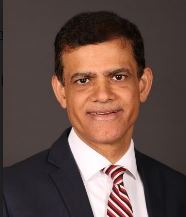
Anuj Puri, Chairman – ANAROCK Group
Going by the sagging sales and supply of affordable housing(*) in India over the past few years, it is easy to forget that this segment was once the housing industry’s veritable poster child. Nevertheless, not too long ago, Indian real estate developers took it very seriously, regularly engaging with their architects to design smaller units to contain prices and ensure sales continuity.
This trend peaked when the Union Government put in concerted efforts to promote affordable housing via the ‘Housing for All’ program. In this period, the government announced many attractive incentives for buyers and developers of such housing. The affordable housing story took on an appealingly patriotic ‘nation building’ sheen and even big brand developers got into the fray (albeit at times by creating ‘sister’ brands for it) to not dilute their reputations as ‘lifestyle housing’ creators.
The supply share of this segment was nearly 40% of the total supply in 2018 and 2019. Cities like Pune, Kolkata, Chennai, and NCR were witnessing consistently high supply of such homes, riding on stimuli such as lower GST rates and tax breaks.
The Pandemic Effect
The COVID-19 pandemic profoundly changed these dynamics, and as of today, we cannot say whether this change is temporary or long-term. In any case, as the nation awaits the Union Budget of the Modi 3.0 government, there is no doubt that the stakes for the languishing affordable housing sector are very high. In fact, it is hoped that Budget 2025-26 will be a resuscitating turning point for it.
After the pandemic, housing demand changed considerably. Now, Indians wanted larger and multi-functional homes with a comprehensive spread of lifestyle amenities. In a very real way, the movement restrictions of COVID-19 gave rise to national-level claustrophobia. Also, the concept of homes as separate spaces from workplaces was displaced – they now had to be able to serve as both residential facilities and offices.
In a fairly short time, the once robust supply of affordable housing tottered and dwindled. Its total supply share reduced from 40% in 2018 to 16% in 2024. The target clientele, consisting of blue-collar workers, lower-paid workforces and those just starting out in their careers, were severely cash-strapped and obviously, buying homes did not feature among their immediate priorities. Instead, the rental market picked up after the pandemic abated and businesses sent out their ‘return to office’ call.
The previously popular model of modest beginnings with smaller ‘starter’ homes and leveraging capital appreciation and career growth to eventually upgrade to bigger ones lost its appeal. Indians who were considering homeownership at all had their eyes on the biggest units they could afford. This trend continues even today, and essentially small-sized affordable housing plays no role in it.
Shrinking Supply
At the developers’ end, constantly rising input costs comprising of land, labour and construction materials (compounded by the low profit margins of affordable housing and the withdrawal of all relevant fiscal benefits) caused their previous enthusiasm for affordable housing to dwindle. Instead, they turned their focus on what was and continues to sell well – bigger units with good lifestyle amenities.
In 2024 and as of now in January 2025, Bangalore is devoid of any supply in this segment. Hyderabad and Chennai are seeing only a minimal 2% supply share. The only cities with any sizeable activity in this segment are Kolkata and MMR. In both these cities, nearly 31% of the total upcoming supply is priced below INR 40 lakh.
NCR has witnessed a drastic reduction in its share of affordable housing, falling from 62% in 2020 to only 11% in 2024. In terms of both demand and supply, NCR is showing far greater interest in high-end and luxury properties, which is evident from the rise in the value of inventory sold during the year. Residential apartments sold in the NCR primary market in 2024 is estimated to be valued at INR 90,000 Cr, which is 32% more than in 2023. In value terms, NCR is second only to MMR.
PMAY – Current Status
While certainly not breaking any records, the Pradhan Mantri Awaas Yojana – PMAY (Urban) – has made steady progress since it was announced in mid-2015. Data by Ministry of Housing and Urban Affairs indicates 118.64 lakh homes have been sanctioned as of 20th January 2025. Nearly 90.22 lakh units have been completed, and nearly 112.50 lakh have been ‘grounded’. In terms of the financials, nearly INR 200,000 Cr of central assistance has already been committed.
Despite fairly good progress, PMAY must be made accessible to more people, and awareness about it also needs a big shot in the arm. New adaptable, sustainable and low-cost construction technologies can be used to rapidly develop large mass housing projects. The government should also try to eliminate bottlenecks in property records.
An important aspect of PMAY is interest subsidy on home loans, and direct subsidy for individual house construction or enhancement. However, to qualify for these subsidies, properties need title documents – a big hurdle, since India’s land records system is far from sophisticated enough right now to address the task holistically and at scale.
Any announcements that Union Budget 2025-26 will make in context with affordable housing will doubtlessly involve PMAY. Creative solutions and strong political will can bring this vitally important programme back to centre stage, which is where it belongs.
Is the Tide Turning?
Nationally, rising prices have led to a gradual tapering down of luxury housing, and this may trigger an inflection point where the cycle can once again turn positive for the affordable segment. Any substantial announcement for the affordable housing segment in the upcoming Union Budget can strengthen the trend and give affordable housing a seriously needed leg-up.
Even if such measures don’t initiate a full-blown revival, they can at least improve this segment’s overall prospects. Finally, a healthy housing market caters to a broad range of buyers and doesn’t favour just one segment.







